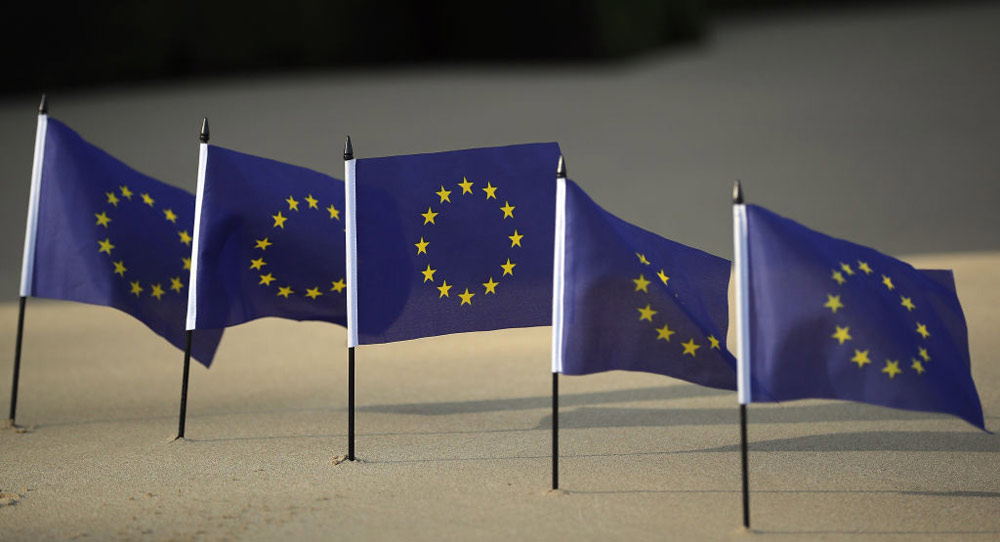As the procedure for Britain’s withdrawal from the EU gets under way, the rebalancing of the EU’s institutions and economy that will follow promises to be nothing short of revolutionary. Brexit will have consequences not only for how the EU will function going forward but also for how transatlantic relations will evolve.
In a nutshell, Europe is on the threshold of a systemic adjustment comparable in scope with that seen in 1989–1990. Then, the winding down of the Cold War and the decomposition of the Soviet empire ushered in a fundamental reframing of what constituted Europe, as NATO and the EU moved Eastward. Today’s process of reorganization is likely to be anything but orderly.
With the UK on the way out, the dramatic shift of the EU’s economic center of gravity to the eurozone is just one factor that is poised to remake Europe’s overall structure. Yet although the impending change in Europe may be accelerated by Brexit, it has been driven by larger economic and political forces, including the reawakening of Europe’s nationalisms since the 2008 economic crisis and large-scale migration flows from the Middle East and North Africa. The deconstruction of the post–Cold War EU has now been under way for close to a decade and is poised to produce a qualitatively different Europe.
One increasingly likely end state is not a Europe of two speeds, as many analysts have advocated, but a much more profound change that will impact the nascent European identity, the continent’s politics, economics, and security, and, in the end, Europe’s broadly understood culture. As the cumulative pressures of the past decade gather, Europe may be on track for a change beyond the EU’s institutional bifurcation into a Carolingian core of France, Germany, and Italy and an Eastern periphery.
If current trends continue, a multivector Europe may emerge within the EU’s partly hollowed-out institutional shell. New, self-generated fault lines could become established not only between inner and outer states but also within regions. For instance, the Baltic states and Slovakia may hew closer to the eurozone on economic and governance issues while engaging with the noneurozone Central Europeans and Scandinavians when it comes to security.
The story of the EU of late is of two centripetal forces working concurrently in two different regions. On the one hand is the increasingly self-serving illusion that the eurozone can restore its economic momentum as long as it keeps its distance from the EU’s noneuro area. On the other hand is Central Europe’s increasingly self-centered regionalism, which is seeking to configure itself around various geostrategic visions—be it through a reinvigorated Visegrád Group consisting of the Czech Republic, Hungary, Poland, and Slovakia or a so-called Trimarium linking states that border the Baltic, Black, and Adriatic Seas.
Both trends will ultimately undercut the post–Cold War EU vision of a wider and deeper union, making regionalism in both East and West ever more likely. Furthermore, rather than yielding a clean-cut division into the EU’s West and East, the transition will have to factor in deteriorating security along NATO’s Eastern flank. That will make clear regional alignments along economic priorities difficult to sustain when Europeans are confronted with the security imperative of deterring a resurgent Russia.
Such a transformation would have lasting implications for European security. Although NATO and the EU were created as separate institutions, they developed complementary roles in structuring the larger West. If the EU bifurcates and possibly even implodes, NATO will need to pick up much of the slack at a time when the appetite for further alliance enlargement has greatly diminished. Should Europe revert to bilateralism as it fragments into subregions, this will add a new layer of complexity to the U.S. relationships with individual European countries, as regional security optics will no longer be parts of a larger continental landscape.
The EU cannot sustain its current multivector pull without fundamentally altering the institutional framing of the European project—and possibly returning to bilateralism as Europe’s modus operandi. In fact, member states have already created a momentum that is pushing the EU into establishing its own potential fault lines on various national policies, such as immigration or security. Today, as Brexit becomes a reality, the European project itself is at risk, as the political and economic momentum that has built up over the last decade is leading Europe ever faster back to the future.
Andrew A. Michta is the dean of the College of International and Security Studies at the George C. Marshall European Center for Security Studies. Views expressed here are his own.









